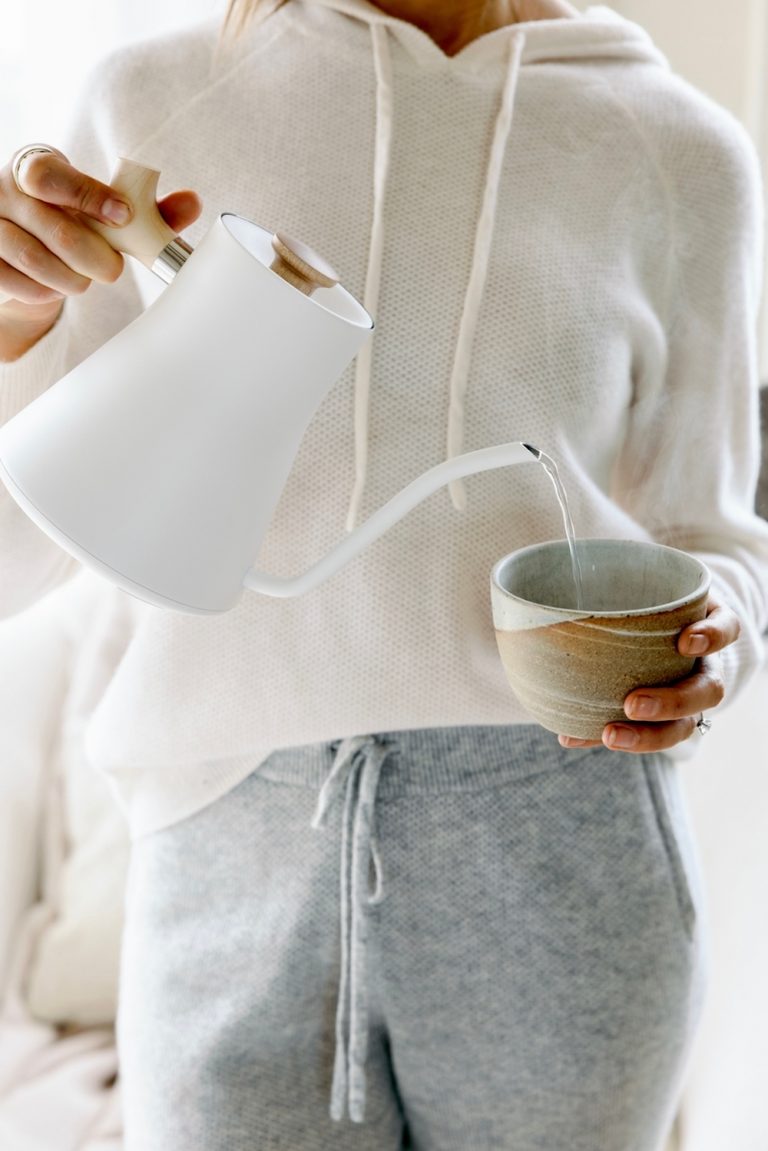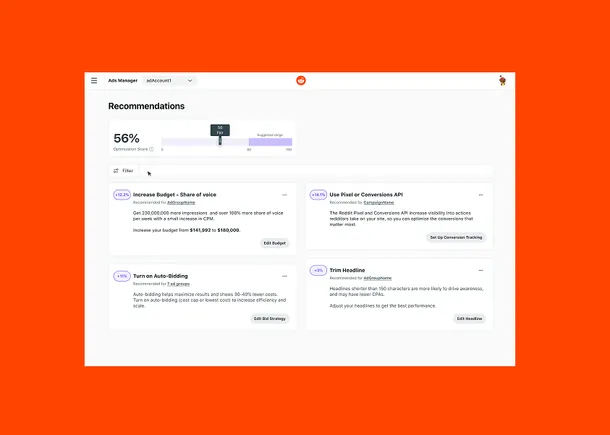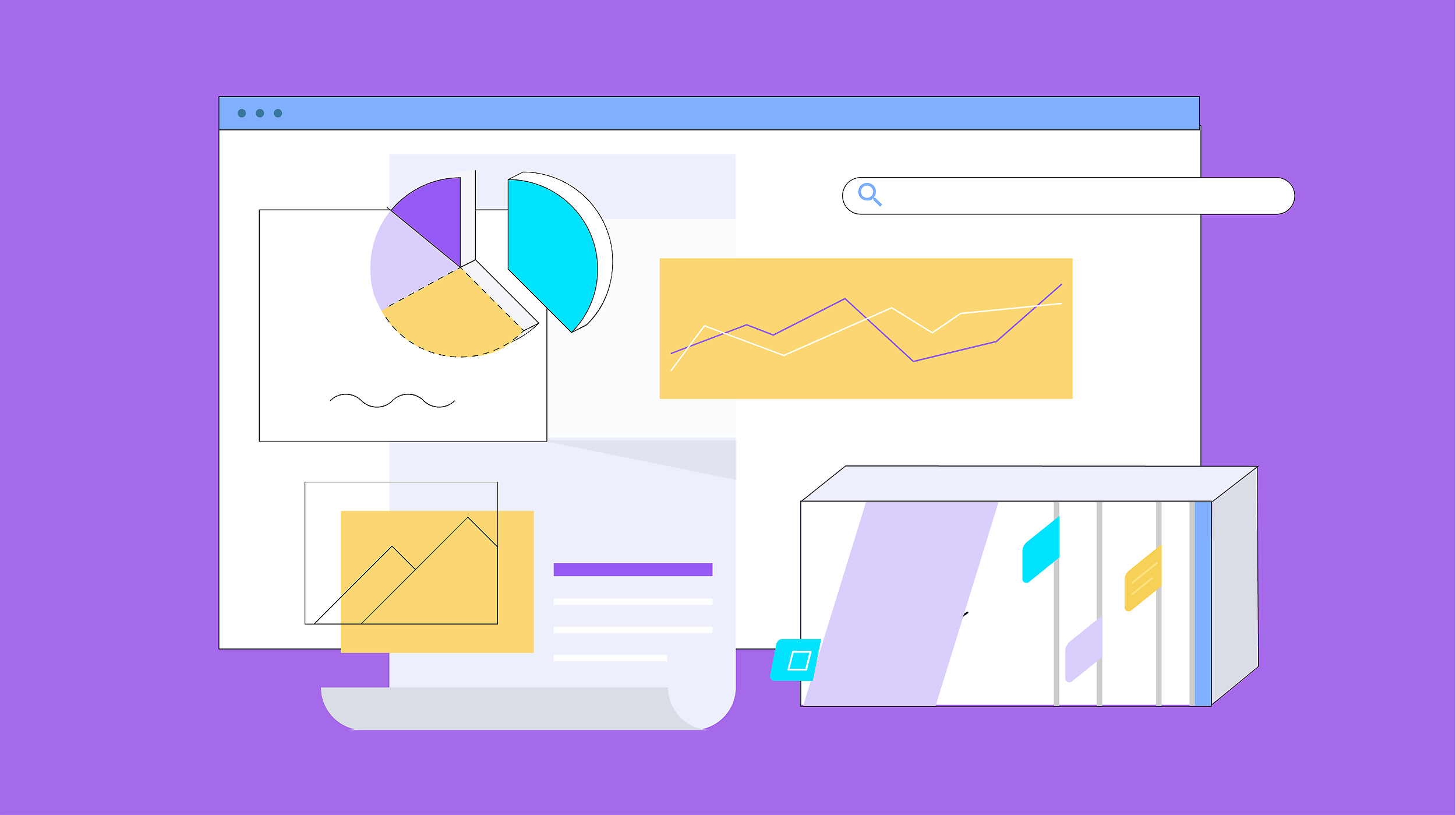A Nutritionist’s Tips To Reduce Bloat—Plus, 10 Teas For Digestive Health
De-bloat with a cup of calm. The post A Nutritionist’s Tips To Reduce Bloat—Plus, 10 Teas For Digestive Health appeared first on Camille Styles.

Let’s face it: a bloated midsection is all it takes to spiral down a weight-loss mission, negative self-talk, or a woe is me conversation with a friend. We’ve all been there. But truth be told, a bit of bloat is no big deal. In fact, it’s one of the most common phenomenons. When we eat, we bloat. And to a degree, this is totally normal. Bloating has a decidedly negative connotation in the wellness world, but it’s pretty standard. Therefore, let’s curb the chase for a persistently flat stomach—that’s not realistic. Especially during certain times of the month. You can, however, minimize bloat’s impact on your daily life. Without further ado, here’s everything to know about bloat: facts, myths, and the best teas for bloating.
What is bloating?
We know what it feels like—but what is bloating, exactly? Ultimately, bloating is a combination of gas, air, and/or fluid retention in the stomach and intestines. When you’re bloated, you may feel as if there is no room in your stomach. Often, your tummy feels full, tender, and tight. In some cases, swollen. If you’ve experienced it, bloating can be both uncomfortable and painful. Luckily, there are many ways to stop bloating in its tracks.
1 of 15
What causes bloating?
A variety of factors. As mentioned, bloating happens when the GI tract becomes filled with air or gas. This can be caused by the mere process of eating. However, certain foods and carbonated drinks can make it worse. Inevitably, some foods produce more gas than others. If you have a food intolerance or allergy, you’re likely no stranger to bloat. Additionally, bloating happens if you eat too much too fast. Beyond food, the menstrual cycle is another common cause of temporary bloating. Research shows that changes in progesterone and estrogen cause the body to retain more water and salt—thus, bloating.
Surprising Facts About Bloat
While it’s common knowledge that overeating—as well as eating too fast—triggers bloat, there are sneakier culprits to a bloat brigade.
1. Healthy Foods Cause Bloat
Even some of the world’s healthiest ingredients can leave us bloated. We fill our bellies with hearty lentil salads and nourishing grain bowls, only to realize we’re a bit gassy. A few of the biggest culprits?Cruciferous vegetables and beans. Veggies are high in insoluble fiber, which draws fluid into your intestines. This leads to bloat. Of course, the answer isn’t to cut out good-for-you foods—like produce—rather, it’s to eat them alongside healthy fats and protein, cook your veggies for easier digestion, and focus on chewing slowly.
2. For Better Digestion, Ditch The Diet Foods
There’s more than one reason to ditch diet foods. Fat-free and sugar-free foods are laden with sugar substitutes, which are hard for your intestines to digest. They stay in the bowel and draw water in, increasing bloating. And even if your body can digest those faux sugars, they’ll just create even more gas. No, thanks.
3. Get Moving: Sitting All Day Makes You Bloat
In general, being more active leads to increased activity in the GI tract (a good thing!). Therefore, sitting all day can lead to slower metabolism to even slower digestion. Hello, constipation. And when you’re backed up, you’re likely bloated. The prescription? Move. Invest in a standing desk, do 20 squats between meetings, or head out for a quick lap around the block before cooking dinner.
2 of 15
Signs of an Underlying Gut Issue
So, how do you know if you’re experiencing “normal” bloat or an underlying gut issue? While this varies from person to person, below are universal indicators of an underlying gut issue. If any of these ring a bell, consider discussing these symptoms with your healthcare provider.
Chronic digestive issues. Daily constipation, bloating, gas, stomach cramps, acid reflux, or heartburn. A healthy digestive system should be able to process food and get rid of waste with ease. Unexpected weight loss or gain. Without a change in diet, stress, or exercise habits, steep weight loss or gain can point straight to an unhealthy gut. A gut that’s not balanced can have trouble absorbing nutrients, regulating blood sugar, signaling that you’re full, and storing fat. Constant fatigue. A lack of diverse gut bacteria is directly linked to a lack of energy, chronic fatigue, and sleep disorders. A gut that’s not functioning properly can have a hard time producing or regulating serotonin—which can affect your ability to get a restful night’s sleep. Skin conditions. Gut health affects everything, including your skin. Conditions like eczema and acne are linked to inflammation in the gut, caused by food allergies, poor diet, and lack of good gut bacteria. 3 of 15
Bye-Bye, Bloat: 5 Ingredients to Limit
If you regularly experience bloating, diarrhea, congestion, eczema, or acne, you’ll want to take a closer look at your diet. Keeping a food journal and jotting down your symptoms can be very insightful. That said—because we’re all bio-individuals, what triggers your bloat won’t be the same as mine. Take this list with a grain of salt.
At any rate, these are universally helpful ingredients to limit for gut health:
artificial sugars glyphosate guar gum carrageenan industrial seed oils 4 of 15
10 Functional Teas to Give Bloat the Boot
Sift through the tea box at your favorite spa, and you’re bound to find teas like chamomile, lemon balm, rose, and peppermint. No surprise, as these herbal teas are one of life’s most simple and soothing pleasures. Creating a ritual out of steeping tea is comforting, relaxing, and instantly grounding. In many cases, a cup of tea can also help with digestive woes. Without further ado, here are 10 of the best teas for bloating.
Every product is curated with care by our editors and we’ll always give an honest opinion, whether gifted or purchased ourselves. If you buy something through our links, we may earn a small commission at no cost to you.
Ginger Tea
No surprise here. Ginger is incredibly nourishing for overall health and well-being. It has been used to treat digestive issues since ancient times—and the research proves it. Ginger is known to aid in—and increase the speed of—digestion, while also reducing intestinal cramping. For further soothing effects, pair your ginger tea with raw honey and lemon.
Peppermint Tea
Peppermint—and peppermint tea—has long been used to soothe digestive issues, including bloating. Similar to ginger, peppermint is also an intestinal relaxant. It’s wonderful for nausea as well. Peppermint works by allowing everything from swallowed air to built-up gas to pass through the intestines more easily. It’s also one of the best teas for bloating because of its high concentration of flavonoids (these help calm the bacteria).
Chamomile Tea
Chamomile tea is a delightful option for digestion, wellness, and promoting relaxation. Small but mighty chamomile flowers are known to decrease levels of bacteria, soothe abdominal pain, prevent diarrhea, and decrease gas. Enjoy chamomile tea for a bloated or upset stomach as well as to aid in a better night’s sleep.
Turmeric Tea
Turmeric is a bold yellow spice with a pungent, bitter flavor. It’s been found to have potent inflammation-fighting and gas-relieving properties. In fact, it’s been incorporated in traditional Chinese medicine to treat abdominal pain and bloating, according to a 2016 review in Electron Physician.
Fennel Tea
If you haven’t tried fennel seeds, they taste similar to licorice and have long been used to aid in digestive health. According to herbalists, fennel is known to decrease constipation and abdominal pain. It can help muscles of the gastrointestinal system relax and reduce gas, bloating, and stomach cramps.
Lemon Balm Tea
Lemons and citrus fruits are known to provide powerful cleansing properties and immune support, especially when added to tea. Lemon balm, specifically, can help alleviate mild digestive discomfort like bloating and gas—as well as increase normal digestive movements. To boost your digestion each morning, try drinking a lemon-based tea, like Traditional Medicinals’ Lemon Balm tea.
Dandelion Root Tea
Feeling bloated due to extra water retention? Dandelion root tea can be a solution. For years, dandelion (that’s right, the flower!) has been used to stimulate urination. Now, research suggests this folk remedy may have some basis: those who took an 8-ounce extract of dandelion not only urinated more often, but also urinated in greater amounts. In essence, dandelion tea can provide relief because it acts as a diuretic.
Matcha
We love a matcha moment. Made from green tea leaves, this full-bodied tea packs an earthy flavor, a deeper green color and, of course, caffeine (but less than a cup of coffee). Among the many benefits of matcha, it’s packed with cancer-fighting antioxidants and increases metabolism. In terms of bloating, studies point to a number of ways that green tea supports gastrointestinal health, including better food absorption and gas reduction. Many people add milk to their matcha, so you can enjoy it latte style or add a small amount of sweetener to taste.
Hibiscus Tea
Like steeping a cup of turmeric tea, hibiscus tea makes for a beautiful, colorful drink. The flowers produce a sweeter, cranberry-like flavor. When boiled, the flavonoids in hibiscus can help regulate a hormone called aldosterone. This controls electrolyte levels and affects water intake—both key to beating the bloat.
Wormwood Tea
Have you heard of wormwood? Wormwood is a leafy, green herb that makes a bitter tea. It’s an acquired taste, but you can soften the flavor with lemon juice and honey! Due to its bitterness, wormwood is sometimes used in digestive bitters. These are supplements made of bitter herbs and spices that may help support digestion. To make the tea, use 1 teaspoon (1.5 grams) of the dried herb per cup (240 ml) of boiled water, steeping for 5 minutes.
Notably, wormwood shouldn’t be used during pregnancy, as it contains thujone, a compound that can cause uterine contractions.
This post was originally published on October 24, 2022, and has since been updated.

 Konoly
Konoly 































